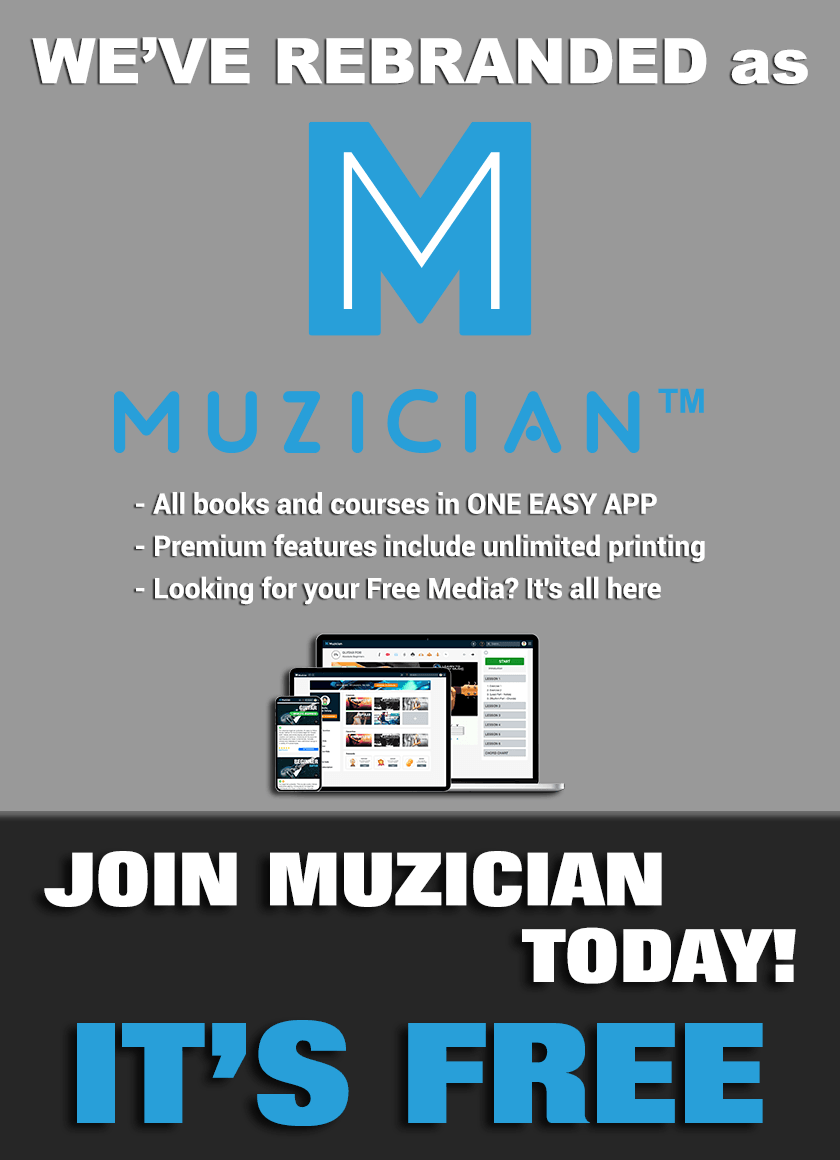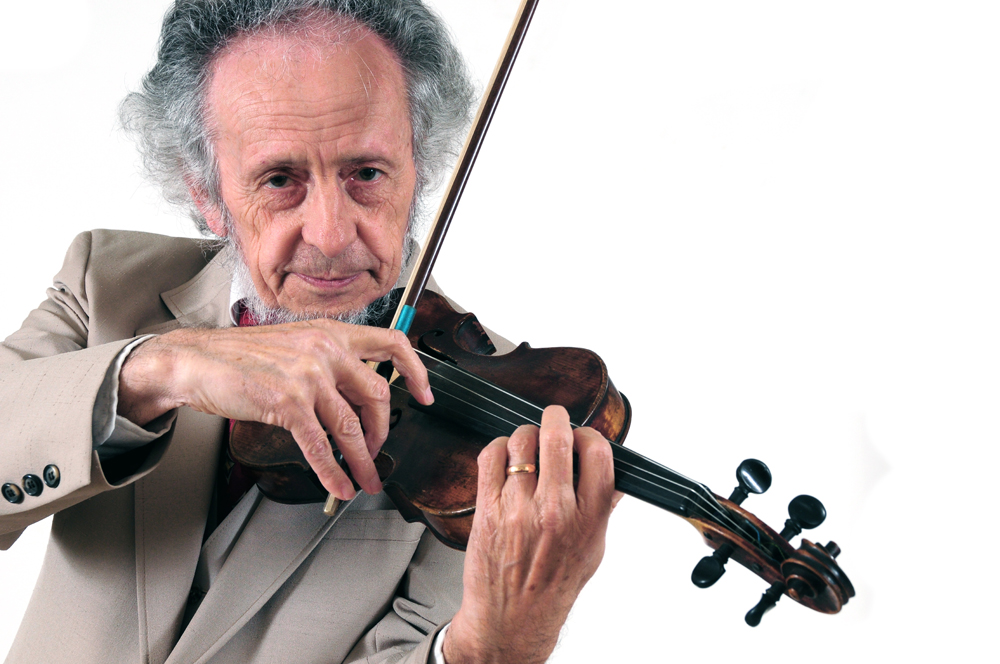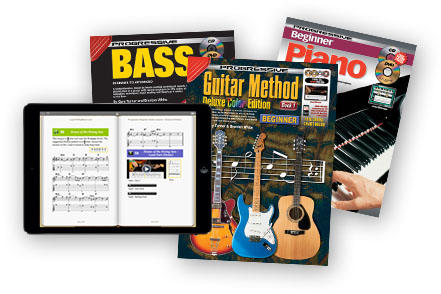“Am I too old to learn music?” This is a common question for many aspiring teachers and musicians alike. The simple answer to this question is NO, you are never too old to learn music or to play an instrument.Assuming you can still use your hands to hold a fork and knife or catch a ball, there are two main things you need to learn to play an instrument.
The Big Secret to Learning Music at Any Age
Ready for the big secret? Ok.The two things you need to learn to play any instrument are (drum roll)….. patience and a willingness to put in the time for practice (what really? can it be so simple??). Maybe you’ve already heard that piece of advice before but for some reason you still feel that you simply have no talent or ability to learn an instrument. You’ve tried and tried all your life but it always ends in failure. For those of you that feel that way, let’s get one thing straight right now.
Natural talent may help with people learning faster and become great musicians more easily, but it has nothing to do with being able to learn to play an instrument. Some people learn languages faster than others, some slower. Some people drive cars spectacularly, and some are dangers to society when they’re on the road. The point is, everyone can speak a language, and most people of adult age can drive for better or worse.
Anyone can be taught and everyone can learn if they are motivated to.
The Psychology Behind Learning
For those of you feel like they need a real life example, I recommend reading a book titled Guitar Zero by Gary Marcus. In the book, the author (who happens to be a professor of psychology and director of the NYU Center for Language And Music) talks about how he learned to play the guitar after years of feeling like a talentless musical oaf with people telling him he had no rhythm and couldn’t follow music to save his life . Ok, I’m paraphrasing a little, but you get the gist of it. Learning to play an instrument is the same as any other skill. Firstly, you need to put in the time to give your body, brain and muscles an opportunity to adapt to particular movements. Next, you need to give your mind an opportunity to absorb any necessary musical knowledge you will need to read and play music.
It takes time and dedication, and this is where being older can be beneficial as more mature students tend to be able to focus better and have greater patience than their younger counterparts (true story). Adult students also tend to be more analytical and able to process information more systematically allowing them to learn faster by correcting mistakes more effectively.
In Conclusion
While the above may not apply to every single person that ever lived, however the point is that everybody is teachable and everyone can learn, no matter what age you’re at. With that though, it does help to have somebody like a teacher or a friend to give you constant feedback if you feel you are the type of person who really struggles with rhythm. It will vary from person to person, but don’t judge your progress against someone else’s measuring stick. You are your own person with your own style of learning. Find a method that works best for you, then take it from there.
If you’re interested at giving learning an instrument a crack and don’t have access to a teacher, we have free lessons with video demonstrations here on the blog as well as a wide range of music lesson books & ebooks covering all sorts of instruments and styles.
Our books are designed to teach progressively so that you learn in easily digestible chunks, building up from each lesson and preventing overwhelm by information overload.Our books are also written by true blue music teachers and developed based on feedback from thousands of real students to ensure our content caters specifically to the people we are writing it for.
– Continue learning with us at LearnToPlayMusic.com.































Thank you for a great post. I have also met people who think they are too old, or think they have no natural talent for piano. I love your reasons for still trying piano. Thanks!
A very encouraging and motivating post. I don’t think you are ever to old to learn anything new! Learning to play a keyboard or piano can be so rewarding whatever your age.
I really liked this post, as it is something I always used to hear from my parents when I was a child learning the Guitar. They would encourage me and my sister to play instruments because they were “too old” to learn themselves.
Now I am older, I have decided to learn to play the piano as well, and have found that I am just as capable of learning an instrument now as I was when I was younger.
Thank you for sharing such a great post. I think there is no age limit to learn Music. If you are passionate about to learn anything new , you can learn easily..
Such a great post!
No matter your age, learning playing the piano is rewarding, mind strengthening, and fun! I highly recommend everyone learn to play, no matter how old you are!
Learning to play piano by ear online has never been easier, either!
Clearly this article was written by a young person.
clearly……that post was pointless………..and added nothing to the thread at all.
your deduction also has no merit with its conclusion either…. given the post was actually stating a fact. It matters not how old the person who wrote this was……the point is absolutely valid…..and its motivating.
So stop complaining
This post gives me hope that i can still learn music and instrument also have a career in it….
i have passion for music but i’m a rookie but i’m ready to learn…. i need motivation and lesson or school… i live in Baltimore Maryland, if anyone winning to teach me even i can pay, i’m ready, please contact me…. 443 939 7300 or savioe@ymail.com… text only.
For an older person the problem is not one of being too old to learn, but of being too old to remember. No one wants to be on stage and, despite numerous rehearsals, get half way through a piece and can’t remember what comes next. You could have the score in front of you if you’re playing a piano, but it’s not so feasible if you’re a guitarist in a folk or rock group.
Age-related loss with memory is not something that is addressed in articles claiming you’re never too old to learn to play an instrument. Such claims would be more convincing if the problem of memory loss was addressed.
We hear you Cadellin and understand that memory loss is extremely frustrating. Not sure what the latest medical information is on this subject, and you’d be best looking elsewhere for this, however, I’m pretty sure that it’s a fact that using your memory helps prevent it from getting lost. And playing music is a great workout for many parts of the brain while bringing pleasure. What we’re trying to get across here is that not even attempting to learn to play an instrument because of your age is a poor excuse! Its been scientifically shown that your brain cells (neurons) are just as able to form new connections at an older age as they are when you’re younger. You just have to train them regularly and be patient.
I am 68, I started to learn the Flute, and music, a year and a half ago. I never had music lessons in my life prior to that, and didn’t grow up in a musical family. As a young man I owned a guitar, a harmonica (several), recorder, mandolin and flute thinking I could teach myself. I couldn’t and eventually gave up. I kept the flute. Two years ago I decided to try again and found a wonderful teacher, a real pro. Now I am playing, understand a whole lot more about what I’m doing and benefiting from all kinds of byproducts – do you know how relaxed you have to be to play a flute? It has changed my life! Worth it? You bet!
Good on you Bruce. It’s awesome to hear you speak of the byproducts of learning to play a musical instrument – these are the benefits that so many who never try or give up too soon never come to know and understand.
Bruce,
Well, I am the same age, and have played flute “by ear” since I was quite young (I hear a melody, and then can just play it, in whatever key). Never learnt to read music, though. Now I have to unlearn what I know, and after 18 months, I find I am too slow and don’t see the detail in the music as written. Also, I hear it once and then just follow the music, as a sort of shorthand. It is aweful. Some say I have a gift, but I say it is a curse, and I am despairing ever being able to actually understand written music.
All that teachers do is say “you need to practice!!” a million times. They are right, but it really takes the joy out of it.
Great article. And thank you too, Bruce, for sharing your own experience. It’s given me the inspiration to learn to play a new instrument. Thanks!
I never attempted to play an instrument until I retired at 65. I didn’t know I was too old. Discovered I lacked rhythm and still do. Thought my memory was going fast. However!!
Fast forward 6 years: off the Internet, taught myself to play; Mountain Dulcimer, ukulele, harmonica, piano (barely ), and Native American Flute.
Memory? At least 100 songs, words and music, to memory. I have been playing at an assisted living home for over 2 years, playing all the instruments above, except piano. Just played 2 weeks ago for 67 seniors at our church.
Here’s the deal. I am not a good singer, but I sing anyway. I am not a good musician, but I play anyway. I don’t get paid, except with food and cookies.
I have discovered I am way more an entertainer than singer or musician.
I have amazed myself, my family and many others. Having the time of my life, learning and giving of myself to others
Also, I am teaching an 88 year old woman to play mountain dulcimer.
Too old to learn? Perhaps, if your health prevents you from learning. Otherwise? If you have the desire, and willing practice with a passion, THEN GO FOR IT. The rewards are worth it many times over.
So AWESOME Terry. Thanks for sharing.
Yes, age is nothing when learning music. I am 68 1/2 and started learning erhu (Chinese violin with 2 strings) on retirement at 65, Last year I started learning liuqin (柳琴)a high tone Chinese 4 string instrument that looks like a small pipa. And next month I will attend my first accordion lesson.
I found great enjoyment in music. When you successfully play a piece very nice, the pleasure you get is just no amount of money can buy. You have a great sense of achievements and that keeps you going.
Good on you Henry. Thanks for sharing.
Knowing nothing about music, I started playing clarinet at the age of forty. Took private and group lessons. Joined several wind bands. Practised lots. I am know 66 and I am still rubbish. That is 26 years of trying. If a child started at 8 years of age and did exactly as I have done, after 26 years, they would be an excellent musician. Age is everything.
Thanks for your comment Zaffy
This aspect of saying.. well.. I’m too old. If you are interested in playing, for instance, the button accordion. No matter what your age… 15, 50 or 90… go for it and make the attempt. If you fail for any reason, well done, for you have tried. If you wish to further your attempt, get an advisor and or teacher to assist you. If you still come up not being able to learn, that’s ok. Don’t fret. You did your best and tried. That is all that can be expected of anyone. There are many who fail for some reason or other, while there are many who succeed. But the point being that if you are somewhat interested in learning, make that effort to learn. Who knows… you may be surprised and rewarded for your patience and understanding. But you have to first… try and take it from there. Discipline and determination will see many through this. So, good luck in your endeavor.
Thanks John for your inspiring words of wisdom.
I’m glad this is the case. I’m only 34 and my life and learning are definitely not over!! I’m saying this because I picked up a few instruments growing up that I became really good at. Time passed in my 20s where they began to collect dust and my interest in playing became dull. I’ve always been interested in music to the degree of learning, playing, and being in a band. But was never really in it for the fame. I’m trying to encourage myself to pick it back up and play covers for awhile until I get good enough to write my own stuff (new attempt). Now I just use an iPad to make electronic music. I miss my guitars, brums, basses, and keys. Keeping my hopes up!
Great comment, thanks for sharing Liz. I’m sure there are many in the same situation. Regardless of the form, ultimately music is about sharing and communication – done in a truly universal language. All the best.